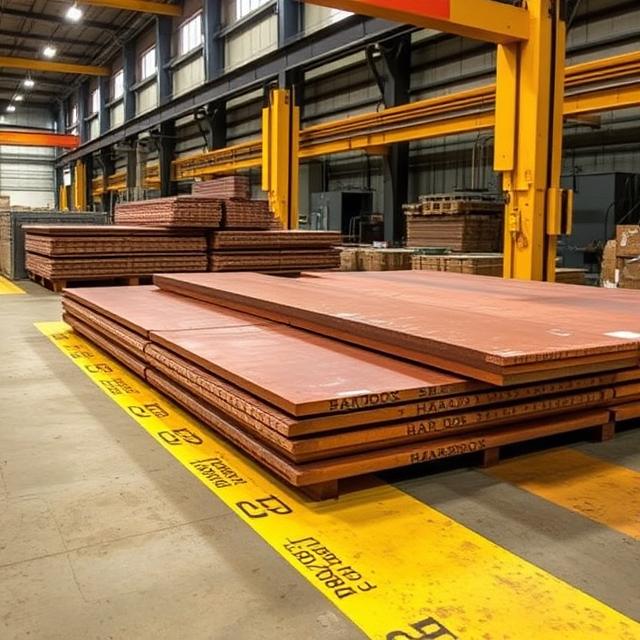At Grafton Pipe Fittings, we proudly offer an extensive range of Hardox Sheets & Plates, engineered to deliver unmatched wear resistance and structural strength across a wide variety of heavy-duty applications. Recognized globally under the ASTM A514 Grade B standard and classified with UNS number K11714, Hardox steel stands out for its superior ability to endure extreme abrasion, making it a first-choice solution for industries such as mining, construction, agriculture, and recycling.

The Hardox range of wear-resistant plates is manufactured with advanced metallurgy and precise thermal control, resulting in a material that combines high hardness with exceptional toughness. These plates are ideal for equipment and structural components that must withstand harsh impacts, high loads, and abrasive environments. From dump truck bodies to liners, crushers, hoppers, buckets, and conveyor systems, Hardox Plates help reduce downtime and improve the lifespan of your machinery.
Hardox 400, 450, 500, and 600 grades each offer targeted performance attributes suited to different industrial requirements. For example, Hardox 400 Plates are preferred in general-purpose applications due to their balance of hardness and ductility, while Hardox 500 and 600 offer even greater wear resistance for more demanding environments. At Grafton Pipe Fittings, we ensure traceability and compliance by providing mill test certificates (MTCs) with every shipment, as per EN 10204 3.1/3.2 standards. Our expert team also assists clients in selecting the right Hardox grade based on specific application and wear-life expectations.
Choose Grafton Pipe Fittings for certified wear-resistant Hardox Sheets & Plates that align with both international material standards and your specific engineering needs. Backed by competitive pricing, quick dispatch, and expert support, we are committed to serving industries across India and abroad with durable steel solutions that elevate operational efficiency and performance.
Specification Of Structural Sheets & Plates
| FEATURES : |
|
|---|---|
| APPLICATIONS : |
|
World Wide Delivery
 India India |
 Mexico Mexico |
 United States United States |
 UAE UAE |
 France France |
 Saudi Arabia Saudi Arabia |
 UK UK |
 Taiwan Taiwan |
 Singapore Singapore |
 Iran Iran |
 Nigeria Nigeria |
 Malaysia Malaysia |
 Italy Italy |
 Canada Canada |
 Germany Germany |
 China China |
 Belgium Belgium |
 Thailand Thailand |
 Iraq Iraq |
 Ukraine Ukraine |
 South Korea South Korea |
 Qatar Qatar |
 Poland Poland |
 Costa Rica Costa Rica |
 Oman Oman |
 Romania Romania |
 Kazakhstan Kazakhstan |
 Jordan Jordan |
 Angola Angola |
 Philippines Philippines |
 Egypt Egypt |
 Colombia Colombia |
 Australia Australia |
 Chile Chile |
 Norway Norway |
 South Africa South Africa |
 Japan Japan |
 Morocco Morocco |
 Portugal Portugal |
 Russia Russia |
 Czechia Czechia |
 Hong Kong Hong Kong |
 Spain Spain |
 Tobago Tobago |
 Netherlands Netherlands |
 Turkey Turkey |
 Greece Greece |
 Indonesia Indonesia |
 Kuwait Kuwait |
 Sri Lanka Sri Lanka |
 Venezuela Venezuela |
 Cyprus Cyprus |
 Myanmar Myanmar |
 Bangladesh Bangladesh |